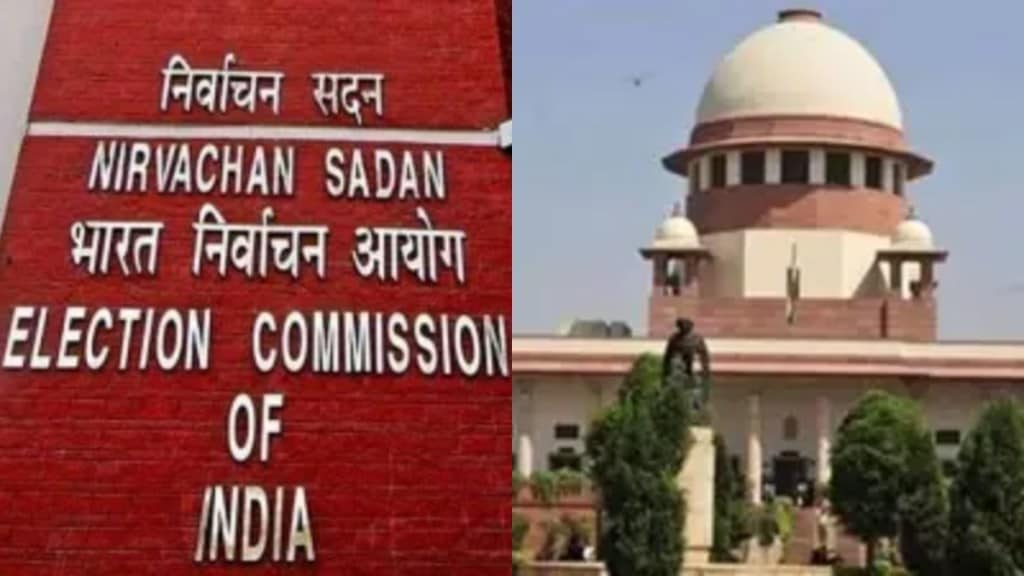The Election Commission of India (ECI) has told the Supreme Court that it cannot provide the names of the 65 lakh electors excluded from the draft electoral rolls in Bihar, nor disclose the reasons for their removal at this stage. This refusal follows its earlier decision not to share a digital, machine-readable voter list.
“As neither the law nor the guidelines provide for preparation or sharing of any such list of previous electors whose enumeration form is not received for any reason during the Enumeration phase, no such list can be soughtby the petition as a matter of right,” reads the EC document.
Meanwhile, the EC has assured the Supreme Court that no eligible voter in Bihar will be removed from the electoral rolls without prior notice. In an affidavit filed on Saturday, the poll body said it was taking “all possible steps” to include every eligible voter in the final list during the ongoing Special Intensive Revision (SIR).
The EC stated that any proposed deletion from the draft electoral roll, published on August 1, 2025, would be preceded by a notice specifying the reasons. Every voter would have the right to be heard, submit relevant documents, and receive a “reasoned order” before a final decision.
The Commission listed safeguards including booth-level visits, involvement of political parties, awareness drives, and support for vulnerable groups. The first stage, which is house-to-house verification by Booth Level Officers, has been completed, with the draft roll now public. Out of 7.89 crore voters, 7.24 crore submitted enumeration forms.
Supreme Court demands clarification
On 6 August, a bench comprising Justices Surya Kant, Ujjal Bhuyan and N Kotiswar Singh directed the poll panel to furnish details of the deleted voters by 9 August. The Court asked for information already shared with political parties to also be provided to the NGO, Association for Democratic Reforms (ADR).
The NGO, which has challenged the ECI’s 24 June order for a Special Intensive Revision (SIR) of Bihar’s electoral rolls, sought publication of deleted names alongside reasons such as death, migration or other disqualifications.
Advocate Prashant Bhushan, representing ADR, argued that while political parties had received a list of deleted voters, they were not informed whether these voters were dead or had migrated. The bench indicated that reasons for deletion would come later, as the list is still in draft form.
Concerns over Bihar SIR
Bhushan alleged that 75% of voters who filled enumeration forms did not submit any of the 11 listed supporting documents, and were included based solely on Booth Level Officer recommendations.
The Supreme Court will begin hearing petitions against the June 24 order on 12 August, with further proceedings on 13 August.
What is the Bihar SIR controversy?
The draft electoral rolls, published on 1 August, list 7.24 crore voters but remove over 65 lakh names. The ECI attributed these deletions to death (22.34 lakh), permanent migration or absence (36.28 lakh), and duplicate enrolment (7.01 lakh).
The SIR exercise, ordered just months before Bihar’s assembly polls, has been criticised by opposition parties as a move that could disenfranchise large numbers of eligible citizens. The ‘claims and objections’ phase runs until 1 September, with final rolls due on 30 September.
Court’s observations
On 29 July, the Supreme Court stressed that the ECI, as a constitutional body, must act in accordance with law, warning that it would intervene if there was “mass exclusion” of voters. It also called for “en masse inclusion” instead of exclusion, allowing Aadhaar and voter ID cards as valid documents for enrolment.
The ECI has defended the revision as necessary to ensure the “purity” of electoral rolls by removing ineligible names.

